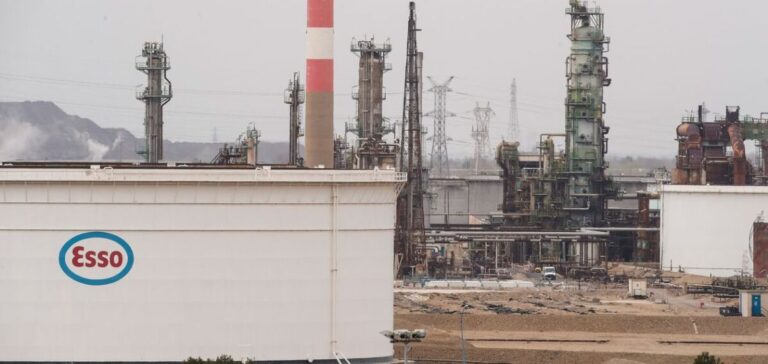Canadian group North Atlantic announced it has entered exclusive negotiations with ExxonMobil to acquire a majority stake in the American giant’s French industrial operations. The agreement targets the acquisition of 82.89% of Esso Société Anonyme Française (SAF) and 100% of ExxonMobil Chemical France SAS (EMCF). The deal notably includes the refinery in Notre-Dame-de-Gravenchon (Seine-Maritime), owned by Esso SAF.
Located on more than 600 hectares in the Seine estuary, the Gravenchon refinery has a processing capacity of 230,000 barrels of crude oil per day. It is France’s second-largest refinery, after the one operated by TotalEnergies in Gonfreville l’Orcher. The facility remains a strategic site for both national and regional energy supply.
Industrial objectives and transition timeline
According to the North Atlantic press release, the company aims to “consolidate the Gravenchon site at the heart of the French energy and industrial sector for decades to come”. The group also stated its intention to “ensure a complete and well-managed transition”, maintaining current jobs, salaries, and benefits.
The transaction is being managed through North Atlantic France SAS, a newly created entity for overseeing the company’s French assets. The deal comes as part of ExxonMobil’s broader portfolio restructuring in Europe, following the sale of its Fos-sur-Mer refinery in 2024 to a Swiss consortium.
Institutional reactions and outlook
Marc Ferracci, Minister for Industry and Energy, is expected to meet with North Atlantic representatives in the coming days to discuss the project. According to the ministry, discussions will focus on “employment and long-term investment benefiting the site and surrounding territory”. The development of activities linked to energy transition will also be addressed.
ExxonMobil confirmed its intention to maintain a commercial presence in France. Tanya Bryja, Senior Vice President of ExxonMobil Product Solutions, said that the Esso brand would continue to operate at nearly 750 service stations nationwide. She added that “France remains an important market”, highlighting ongoing sales of lubricants, chemicals, and specialty oil products.
At 10:15, Esso shares were down 8.47% at €139.40 on the Paris stock exchange, while the broader market posted a modest 0.22% gain.






















